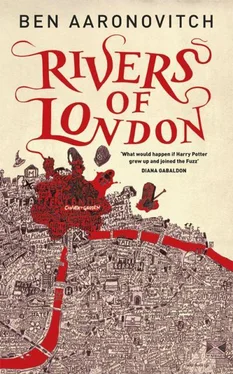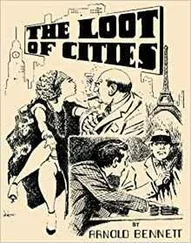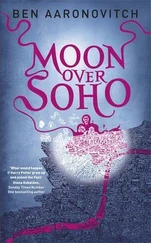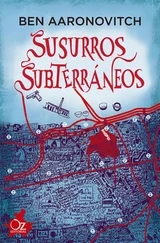I was at that point, and I could feel the righteous anger. How wonderful it would be just to fuck the consequences and let rip. Because sometimes you just want the fucking universe to take some notice — is that too fucking much to ask for?
Then I realised that was what it was all about.
Mr Punch — the spirit of riot and rebellion — does what it says on the tin. This was him, the guy behind Henry Pyke, and he was fucking with my mind.
‘I get it,’ I said. ‘Henry Pyke, Coopertown, that cycle courier, lots of frustration — but that’s everyone in the big city, ain’t it, Mr Punch? And what percentage actually let you in? I bet you’ve got a piss-poor success rate — so you can just fuck off out of it — I’m going home to bed.’
At that point I realised that the train was moving again, the lights were up and the man in the blue blazer didn’t have his hand down my trousers. The ranting drunk was silent. Everybody in the carriage was studiously not looking at me.
I bailed at Kentish Town, the very next stop. Fortunately it was where I wanted to go.
From September 1944 to March 1945, that lovable Nazi scamp Wernher Von Braun aimed his V2 rockets at the stars and yet, in the words of the song, somehow hit London instead. When my dad was growing up, the city was dotted with bombsites, gaps in the neat rows of houses where homes had been obliterated. In the postwar years these sites were gradually cleared and rebuilt in a series of ghastly architectural mistakes. My dad liked to claim that the mistake where I grew up was built on a V2 impact site, but I suspect it was probably just an ordinary cluster of German high explosives dropped by a conventional bomber.
Still, whatever caused the two-hundred-metre gap in the Victorian terraces lining Leighton Road, the postwar planners weren’t going to pass up an opportunity to make mistakes on this scale. Built in the 1950s, the blocks of the Peckwater Estate are six storeys high, rectangular and constructed, as a final aesthetic touch, of a dirty grey brick that weathered badly. As a result, when the clean air act put an end to the famous London pea-soupers and they started sand-blasting the old buildings clean, the Peckwater Estate came out looking worse than it had before.
The flats were solidly built, so at least I didn’t grow up listening to next door’s live docusoap, but they were built on the dubious assumption, so beloved of post-war planners, that the London working class was composed entirely of hobbits. My parents had a third-floor flat with a front door that opened onto an open-air walkway. When I’d been growing up, in the early 1990s, the walls had been covered in graffiti and the stairwell with dogshit. These days the graffiti was mostly gone and the dogshit got regularly hosed into the gutter which, by the standards of the Peckwater Estate, counted as gentrification. I still had my front-door key, which was just as well because when I got there I found my parents were out.
This was unusual enough to give me pause. My dad’s in his early seventies and doesn’t move about much. I figured it had to be a major occasion, a wedding or a christening, for my mum to dress him up and drag him out of the house. I figured I’d hear all about it when they got home. I made myself a cup of tea with condensed milk and sugar and ate a couple of supermarket own-brand biscuits. Thus fortified, I went to my old bedroom to see if there was room for me to sleep in it.
As soon as I’d moved out — and by this I mean about ten minutes after the door had closed behind me — my mum started using my bedroom for storage. It was full of cardboard moving boxes, each one stuffed to capacity and sealed shut with packing tape. I had to move several off the bed just to lie down. They were heavy and smelled of dust. On roughly a two-year cycle my mum collected clothes, shoes, cooking utensils and non-perishable beauty products, stuffed them into cardboard boxes and shipped them back to her family in Freetown. The fact that a great deal of her immediate family had already immigrated to the UK, the US and, strangely enough, Denmark never seemed to cause a reduction in the flow. African families are notoriously extended but from what I could gather, my mum was related to about half the population of Sierra Leone. I’d learned from an early age that anything I owned that I didn’t defend was subject to arbitrary seizure and deportation. My Lego, in particular, was the subject of a running battle from my eleventh birthday on, when Mum decided that I was too old for such things. In my fourteenth year it mysteriously vanished while I was on a school trip.
I prised off my shoes, climbed under the covers and was asleep before I could wonder where all my posters had gone.
I woke briefly some hours later to the sound of the bedroom door being stealthily closed and the muffled sound of my dad’s voice. My mother said something which made my father laugh and, comforted that everything was all right, I went back to sleep.
I woke again, much later, with the morning sunlight slanting through my bedroom window. I lay on my back feeling refreshed, with a solid erection and the vague memory of an erotic dream about Beverley. What was I going to do about Beverley Brook? That I fancied her was a given, that she fancied me was pretty obvious, that she wasn’t entirely human was a worrying possibility. Beverley wanted me to go swimming in her river, and I had no idea what that meant except Isis had warned me against doing it. I had a strong feeling that you didn’t shag a daughter of the River Thames without getting out of your depth — literally.
‘It’s not that I’m scared of commitment,’ I said to the ceiling. ‘It’s just that I want to know what I’m committing to first.’
‘Are you awake then, Peter?’ said a soft voice outside my door — my father.
‘Yeah, Dad, I’m awake.’
‘Your mum’s left you some lunch,’ he said.
Lunch, I thought. The day was half-done and nothing achieved so far. I rolled out of bed, squeezed past a stack of cardboard boxes and headed for the shower.
The bathroom was as hobbit-sized as everything else in the flat, and it had only been by dint of some serious Polish retro-engineering that a power shower was shoehorned into the gap between the sink and the window. It was me that coughed up the cash for it, so I guaranteed I didn’t have to duck my head to get it wet. There was a new soap dispenser mounted beside the shower, the kind you find in the toilets of executive office suites, bought or liberated from a cleaning wholesaler. I’d noticed that the toilet paper and bath towels were much better brands than the ones we used when I was living at home — Mum was cleaning a much better class of office these days.
I got out and dried myself off with an enormous fluffy towel with ‘Your Institution Here’ embroidered into the corner. My dad was of the ‘real men don’t moisturise’ school of dry skin diseases, and all my mum had was a wholesale tub of cocoa butter. I’ve got nothing against using cocoa butter, it’s just that you end up smelling like a giant Mars Bar for the rest of the day. My skin taken care of, I nipped back into my old room where I cracked open some of the boxes at random until I had a change of clothes. One of my distant cousins was just going to have to go without.
The kitchen was a narrow slot that could have been used to train a mess crew for a Trident submarine. It was just big enough for a sink, cooker and a work surface. A door at the far end opened out onto an equally vestigial balcony which at least caught enough sun to dry clothes most of the year round. Curls of blue tobacco smoke drifted in from the balcony, which meant that my father was out there having one of his four precious daily roll-ups.
My mum had left groundnut chicken and about half a kilo of basmati on the cooker. I threw both in the microwave and asked my father if he wanted a coffee. He did, so I made two cups using instant from a catering-sized tin of Nescafé. I topped them up with a centimetre of condensed milk to mask the taste.
Читать дальше












